Fort Worth school board members currently up for re-election will tell you that after years of struggle and scandal there are now more things right with this district than wrong. Credit goes to Superintendent Melody Johnson, now in her fifth year, said trustee Jean McClung. “We are well on our way to making great changes.”
 Test scores are up, helped by new locally developed curricula. The academic achievement gap between Anglo and minority kids is narrowing. Out of 117 schools eligible to take the state-mandated achievement tests, 12 are rated “exemplary,” 43 “recognized,” and 49 “academically acceptable” — about equal to similar urban districts around the state.
Test scores are up, helped by new locally developed curricula. The academic achievement gap between Anglo and minority kids is narrowing. Out of 117 schools eligible to take the state-mandated achievement tests, 12 are rated “exemplary,” 43 “recognized,” and 49 “academically acceptable” — about equal to similar urban districts around the state.
Two new programs aimed at denting the dropout rates will kick in over the next year — an academy to teach leadership skills and “rigorous academics” to 150 6th- and 7th-grade girls will open in August, with one for boys scheduled for the following year. And within two years, each high school in the district will offer two or more specialty programs that will certify students, before graduation, for work in specific fields. The first one opened at Southwest High School this year.
A $594 million bond program is coming to fruition with six “green” schools under construction, eight existing schools being expanded, and upgraded technology in the classrooms. A grant-funded program called Public Educators Accelerating Kids is credited with helping turn around one failing high school shortly before the state would have closed it. In addition, a few teachers’ pocketbooks are fatter this year with incentive pay-for-performance checks as high as $5,000.
“So if the school district is doing so well, why are all four seats being challenged?” asked Tobi Jackson, a former public school science teacher who is running for the District 2 trustee post that McClung has held for 20 years.
It’s simple, Jackson and the other challengers say: It is because there are still so many things wrong.
Almost 70 percent of the district’s students come from families that live at or below the poverty line, and the district is failing to meet the needs of many of them, the opponents say. The 2009-2010 dropout rates for minority students are around 20 percent, slightly improved from previous years but still twice that of Anglos, according to current district figures. And while 104 schools made the grade under the state’s ever more rigorous testing requirements, a dozen, including four high schools, are still stigmatized as “academically unacceptable.” At least two high schools face a state takeover by 2011 if their test scores continue to drop.
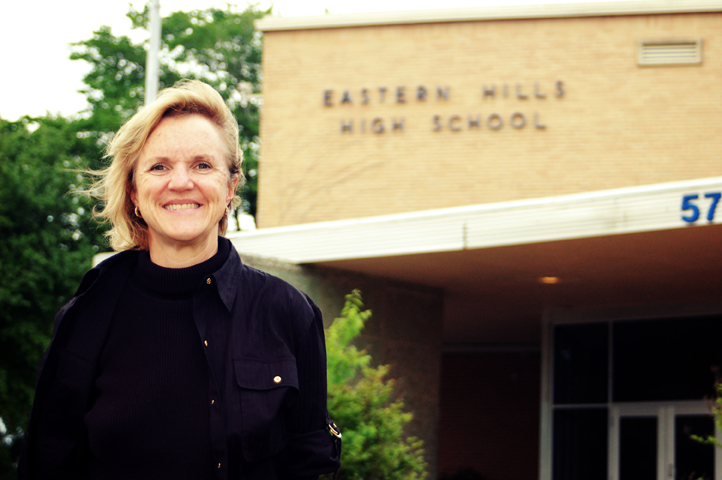 Discipline and safety issues are so serious system-wide that Larry Shaw, head of the United Educators Association, the district’s largest teacher organization, said the schools are losing teachers to suburban districts and students to private schools.
Discipline and safety issues are so serious system-wide that Larry Shaw, head of the United Educators Association, the district’s largest teacher organization, said the schools are losing teachers to suburban districts and students to private schools.
Budget crises continue to plague the district as well. The current budget tops $561 million, with a $20 million shortfall looming. As a result, proposals for closing schools and raising taxes are on the table. Starting pay for teachers is lower than for all of the surrounding suburban districts, and for two years in a row, a board majority has declared a “financial state of emergency” that, under state law, allows them to fire teachers without regard for their contracts — though that hasn’t been done yet. Despite that, the district is sitting on $100 million in reserves that the board has so far refused to touch, saving it for a rainy day.
That rainy day has come, and it’s a downpour, Shaw said. “We hold the board totally responsible” for failing to deal with the district’s problems, from finances to safety, he said.
“Right now, with a couple of exceptions, this board is just a rubber stamp for the superintendent,” he said. “We did not endorse any incumbents this year. That should be read as an important message for this board. … It is time for new leadership.”
Finances, the superintendent’s future, student performance, and parental involvement all rank high on the challengers’ list of issues, The question is, how likely is it that enough of them will be elected to significantly change the direction of the school board? And even if all four incumbents get tossed, how much would really change?
If all four challengers were to be elected on May 8, the school board would lose several decades of combined experience from outgoing trustees. And yet the basic educational credentials of the nine-member board would more than double.
In District 2, Jackson followed her schoolteaching career by becoming assistant director of education at ATI College. Linda LaBeau, a special education mediator, is challenging Judy Needham, 14-year trustee from District 5. Christene Moss, who has held the District 3 seat for 20 years, is facing Dennis Dunkins Jr., who oversaw the Fort Worth district’s magnet program for 20 years and served as its employee ombudsman for 10 years after that. Chris Hatch’s opponent for the District 6 seat is Ann Sutherland, a former public schoolteacher, university professor, budget analyst for the state of California, and staff member of the U. S. Senate committee on education.
On the current board, only one member, Carlos Vasquez, is a former educator. Among the incumbents up for re-election, Hatch is a certified public accountant, Moss is a state nurse surveyor, Needham is a fund-raising consultant, and McClung lists herself as a homemaker and community volunteer.
Their races — especially the two on the East Side — are generating more attention than most school board elections, which generally are yawners. Shaw believes the incumbents are in real trouble this year, and he is not alone.
Rita Vinson, longtime community activist from the East Side is supporting Jackson over McClung even though she considers both women her friends. Jackson also has the endorsements of a couple of the city’s power players, Mayor Pro Tem Danny Scarth and former city councilwoman Becky Haskin, who grew up with Jackson on the East Side.
“Support for Jackson is widespread,” Vinson said, “but because both women have been active in the area for so many years and know most of the same people, some are reluctant to say it publicly. … But they will vote for Jackson. … I think she has a very good chance of winning.”
On the southwest side of town, Sutherland has the endorsement of UEA, which claims 86 percent of the Fort Worth district’s teachers as members. “UEA wants a board that is made up of independent thinkers who will put the employees first. … Sutherland fits that criteria.” Shaw said.
Hatch, who has been endorsed by the Greater Fort Worth Board of Realtors, doesn’t seem worried. He said he’s itching for another four-year go at finishing the reforms started by Johnson. And he wants to hang around long enough to make sure that the boys’ academy is in place before he moves on to another elected post, “one that pays better,” he said with a grin.
 Neither Dunkins, in the southeast, nor LaBeau, running in the northwest part of town, have received endorsements. They’re running grassroots campaigns, heavy on door-knocking. Neither Moss nor Needham, the incumbents in those races, returned calls from Fort Worth Weekly for this story.
Neither Dunkins, in the southeast, nor LaBeau, running in the northwest part of town, have received endorsements. They’re running grassroots campaigns, heavy on door-knocking. Neither Moss nor Needham, the incumbents in those races, returned calls from Fort Worth Weekly for this story.
If all four of the challengers did win, the balance of power would change dramatically on the board, Shaw said. There would be four more voices in support of trustees Vasquez and Juan Rangel, who frequently question the decisions of the superintendent and the board, especially in the area of finance. “These challengers are all educators who would be much more supportive of teachers,” Shaw said. “And that would be music to my ears.”
Hatch, who has an MBA from Arizona State University, is the owner of a financial services firm and the father of two grown children. He’s also chairman of the board’s audit committee — a natural fit, he said, for a CPA.
“I am the best candidate for this job, and I say that with great humility,” he added. “But it is true, because of my experience and my historical knowledge. …I have been one of the decision makers [on the board] for years.”
That’s just the reason Sutherland said she wants to replace him.
“The decisions Mr. Hatch has made are bad ones for the district and the children,” she said, “especially in the field [in which] he claims the most expertise.”
Sutherland is no stranger to school finance: Her educational resumé includes authoring a major study in the 1970s as a consultant for the Stanford University Research Institute, a study that she said helped convince Congress not to cut $200 million in funding from the nation’s urban school districts. In a 40-year educational career, she also taught math in public schools, worked as a budget analyst for the California legislature, and taught economics of education and school business management at the University of Oregon.
Sutherland, with a doctorate from the University of California, is the mother of three adult children and grandmother of ten.
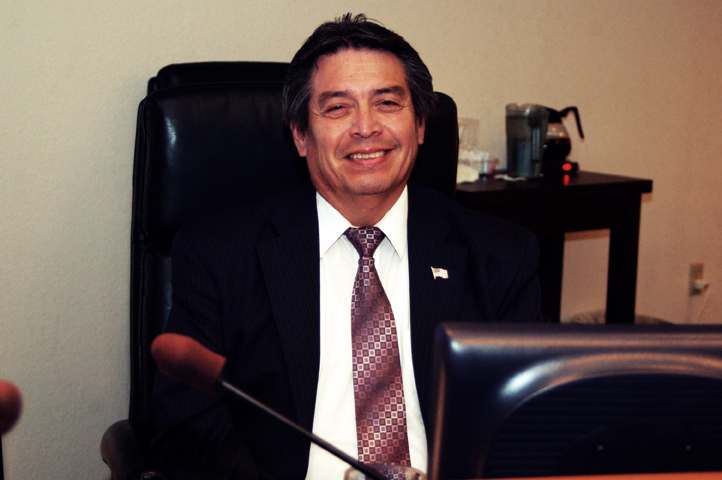 A major criticism made by Sutherland and the other challengers has to do with the district’s handling of the payroll scandal that hit last year when a meltdown in a new financial computer program resulted in the overpayment of at least $1.5 million to a slew of employees from bus drivers to administrators. Even former employees who had left the district years before began receiving paychecks again. Some current employees, on the other hand, received no checks. (“Payroll Hell,” Jan. 20, 2010).
A major criticism made by Sutherland and the other challengers has to do with the district’s handling of the payroll scandal that hit last year when a meltdown in a new financial computer program resulted in the overpayment of at least $1.5 million to a slew of employees from bus drivers to administrators. Even former employees who had left the district years before began receiving paychecks again. Some current employees, on the other hand, received no checks. (“Payroll Hell,” Jan. 20, 2010).
After months of deepening chaos, the administration finally ordered an internal audit that found serious mismanagement issues and concluded that the system was rushed into place long before it was ready. Prior to its implementation, a key employee in the payroll department warned the administration and several board members that the system was not ready; she was fired for her trouble, she said — an accusation Johnson strongly denies. In fact, the employee’s job was eliminated, Johnson said, “she was not fired.” The former employee recently filed a whistle-blower lawsuit against the district.
Johnson has said that the decision to go forward with the untested program was hers and that of then-chief financial officer Ron Wilson, who has since resigned. Hatch said he was in complete agreement with their decision.
The superintendent told the Weekly in January that she had no choice, since the 30-year-old system’s manufacturer had given the district notice that it would no longer service the old software. Still, both Johnson and Hatch acknowledge that the board and administration had known for years that the antiquated system needed to be replaced, but no one did anything about it.
“It was one of those things talked about that just kept being put off,” Hatch said.
Shaw and trustees Rangel and Vasquez called for an independent forensic audit, to no avail. Hatch said that such an audit is not needed because the crisis has passed and there are few remaining complaints of payroll mishaps. Other board members said it would be too expensive.
The challengers disagree. “There should be an independent forensic audit regarding this fiasco,” LaBeau said. “The administration was warned there were flaws in that system, and the person who warned them got fired. That was wrong. The buck stops at the top. If these things happened on [Johnson’s watch] we should be pressing for more details, absolutely.”
The challengers all say that if they are elected they will support an outside forensic audit because, as Sutherland put it, “The taxpayers deserve to know if the $1.5 million is all that’s been overpaid,” since the audit looked at only one year of records for 2,000 of the district’s more than 10,000 workers.
Hatch defended his role as audit committee chair, pointing out that the district has recouped or is in the process of recouping $1.3 million of the $1.5 million in known losses. However, the legal costs of recovering that money, plus fighting the whistleblower lawsuit, could wipe out much of that.
 “Mr. Hatch is culpable in this scandal,” Sutherland said. “He abrogated the public trust, and the people of District 6 deserve better.”
“Mr. Hatch is culpable in this scandal,” Sutherland said. “He abrogated the public trust, and the people of District 6 deserve better.”
The challengers also see the payroll problems as an indicator of the district’s larger financial quagmire. And while Hatch and McClung both said the board may have to consider the unwelcome possibility of raising taxes next year, to cover the impending shortfall, all the challengers said tax hikes are no solution.
McClung blamed the state for the crisis, because it has frozen the district’s funding at 2007 levels. However, Shaw said the reason was the big pool of money this district has in reserve. “The state isn’t going to give any more money to districts with such large reserves until they spend it down,” he said.
None of the challengers offered specifics about where they believe cuts could be made. Sutherland, Jackson, and Dunkins said they would thoroughly inspect the finances of the district for such cutting opportunities before they would consider a tax increase. LaBeau called it “scrubbing the budget.”
Of course that’s what Hatch and McClung believe the board has been engaged in for several years. Hatch thinks the board has cut all it can — and that further cuts will be doubly painful because about 86 percent of the budget goes for salaries.
Fellow incumbent Rangel disagreed. “We haven’t cut all the fat that’s there yet,” he said.
McClung said she thinks it’s time for the board to dip into its reserves, transferring at least $10 million to the current budget to cut the shortfall in half.
One option the challengers aren’t suggesting is closing small-enrollment schools — a possibility that McClung and Hatch said trustees have reluctantly discussed.
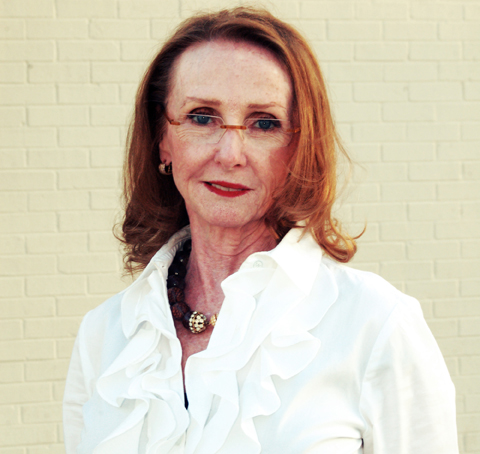 “If we do close schools, we will never close buildings,” McClung said. “We will utilize those buildings for some purpose.”
“If we do close schools, we will never close buildings,” McClung said. “We will utilize those buildings for some purpose.”
Both Hatch and McClung said they are running for re-election in part to ensure that Melody Johnson’s job is safe. Hatch said he fears what a new board might do on that score, and McClung said that Johnson might be more likely to stay if she knew the current board would continue.
“All the improvements we are seeing are the result of her innovative thinking,” Hatch said.
But is the superintendent’s job really in jeopardy, even from the challengers? That’s not at all clear. No challenger has suggested that Johnson should be fired, though they have criticisms.
“The buck stops at the top,” LaBeau said of the payroll scandal.
The Fort Worth superintendent’s $328,950 salary is one of the highest in the state. Additionally, eight of her top administrators draw a combined total of more than $1 million annually. Both those numbers bother LaBeau.
“The disparity between high-paid administrators and teachers needs a review. … I would support a freeze on those salaries until we see our high schools doing better,” but no cuts in pay for teachers or “the worker bees,” she said.
She said it is evident after attending board meetings that trustees will be asking for a special election in the spring of 2011 to raise school taxes.
A special election is necessary because in 2007, Hatch said, the state froze the amount each district could spend per student, and it froze the tax rates in place then. “That means if we need to raise taxes, we will have to take it to the taxpayers for a vote,” he said.
LaBeau said that district officials use the funding freeze as an excuse. “But the truth is that Johnson has not been fiscally responsible … nor has the current board exercised their fiduciary duty,” she said. “Every time I’ve been to a school board meeting, I leave with my hair on fire” because the board has voted on critical financial issues after having seen the proposals only about 15 minutes before the vote.
That happened with the payroll audit and the district’s annual audit as well, said Sutherland. “Those audits were never evaluated by the audit committee as required by district policy before they were presented to the board for its approval, shortly before they voted. And they voted to accept both audits without having read either one.”
“No wonder we have financial problems,” LaBeau said.
LaBeau is the mother of three children, one of them a student at Arlington Heights High School, another on the list of Fort Worth schools with an “unacceptable” rating. She is an R.N. and educational specialist who has worked for years with the Texas Education Agency as a mediator in cases involving special education children, to make sure their rights were protected and the schools were following the law — experience that she believes would be invaluable on the school board.
Like other incumbents, Needham, whom LaBeau is opposing, has generally been a supporter of Johnson. She’s a Fort Worth native who went through the public schools, attended Sweet Briar College, and earned a degree in mathematics from the University of Texas in Austin. A trustee since 1996, she is chairman of the board’s technology advisory committee and the mother of three kids. Like Moss, she has worked on behalf of homeless children, and there is a library named in her honor at the Union Gospel Mission.
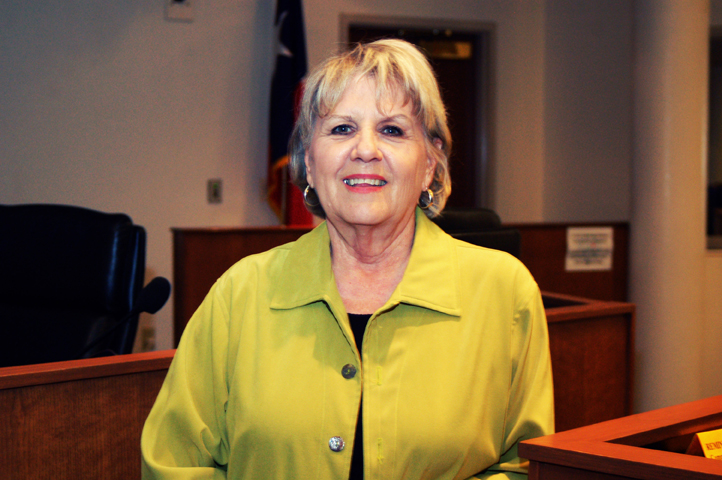 Other challengers question Johnson’s performance in improving the quality of education being offered in some schools. Jackson, for instance, lauds Johnson’s leadership in making improvements but said they’re not coming fast enough to save the schools on the East Side. “We need new ideas, new leadership from the board,” she said. “Time is running out.”
Other challengers question Johnson’s performance in improving the quality of education being offered in some schools. Jackson, for instance, lauds Johnson’s leadership in making improvements but said they’re not coming fast enough to save the schools on the East Side. “We need new ideas, new leadership from the board,” she said. “Time is running out.”
Much of the heat in the current campaign season is concentrated on the city’s East Side — just as it is at City Hall these days.
In District 2, in another time, McClung and Jackson might have worked together on some neighborhood improvement project. They are both Meadowbrook area community activists who grew up in the same neighborhood. They live three blocks apart, which today might as well be three oceans.
McClung, who has one daughter and twin grandchildren, has held the board seat for 20 years. Jackson is only her second opponent and perhaps the most formidable thus far. McClung said it hurt to lose former supporters like Scarth and Haskin. “I helped both of them get elected,” she said. “But I will move on; that’s their decision.” Like Hatch, she said that if she’s re-elected, it will be her last term.
That’s an announcement that Jackson, 49, said she’s been expecting to hear for years. “I have wanted to run for some time,” Jackson said, “but I kept waiting for Jean to retire, like she said she would many times. Finally I thought, ‘I can’t wait any longer, she’s not gonna go.’ So I jumped in.” She and her husband have two young daughters who are in private school, a fact that disturbs McClung.
“I don’t know how much she investigated the Fort Worth schools, but she should have tried them,” McClung said. “We have some very good schools.”
Jackson said one of the reasons she’s running is to make the district better so that more parents will keep their kids in the public schools. “I am a product of the Fort Worth schools … . They served me well,” she said. “But today’s schools are not the same. I plan to change that.”
Scarth wrote in an e-mail that he believed “many of our school-related problems began when the local high school ceased being the social center of the neighborhood, the way it was when … I was in school. … This community wants to be involved. … [and] I believe Tobi will actively engage the community.”
Jackson noted the dismal record of the Eastside high schools. Eastern Hills, from which she graduated in 1978, has a 61 percent “attrition rate” this year (the number of students who start in 9th grade but who do not make it through year 12), and Carter Riverside High School’s rate is 37 percent. “No one knows what happens to these kids,” she said, “as there is no mechanism to track them.” Only four of the 12 schools in District 2 are rated as “recognized” and none as exemplary. Their SAT and ACT scores are below the local, state, and national averages, and Eastern Hills, which has been rated “academically unacceptable” for three years, faces closure by the state unless there’s a dramatic turnaround in the next two years.
Jackson has spent many years in education posts. Before becoming assistant director at ATI, she taught anatomy and physiology in the public schools and was a GED instructor. She said her area of expertise is “at-risk students.”
She said that about 28 percent of the students at ATI are dropouts from public schools. “I am teaching the kids who are dropping out of the Fort Worth schools. I know why they left, and that gives me the knowledge and expertise to help design programs that will help keep them in school,” she said.
Some dropped out because of drugs or family reasons or because they had to get jobs. “But for others it was as simple as the fact that they never learned to read,” she said. “Finally, about eighth grade, [they] dropped out simply because they couldn’t learn, and no one seemed to care.” One student told her that she knew she couldn’t read by second grade, but she kept getting promoted anyway.
“We need early intervention, more mentors, and we need to make sure help is available for such kids,” she said. “No child should be promoted who can’t read.”
McClung said that much of what Jackson proposes is happening. “We are well on our way to making great changes on many things, especially how we deliver curriculum and what the curriculum is,” she said.
But McClung is most concerned with the opening of the gender-based academies, where, she said, the emphasis will be on academics, not a “social experience.”
“I want to stay and push for a boys’ leadership academy now that we have the girls’ ready to go,” she said. “We have to think outside the box, recognizing that our kids are different today.”
Jackson is also adamant about the need for stricter discipline in the classrooms. “There is no point worrying about academics until we are willing to remove disruptive students,” she said. “No teacher can teach when two or three students are constantly disrupting her class.” She wants such students to be placed in a separate school that addresses both academics and behavior.
She said one of the reasons that discipline is becoming a problem is that the current board decreased the use of campus monitors to save money. “All that did was to allow unruly students to remain in the classroom, and it provided less security on the campuses.”
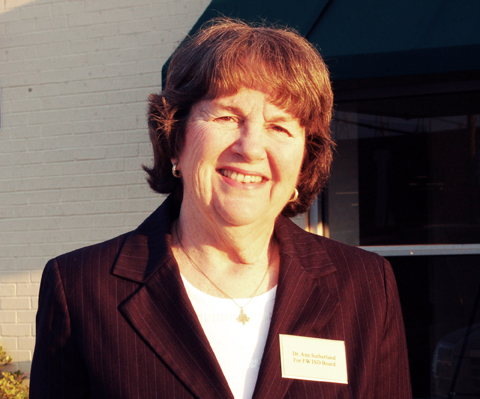 Barbara Griffith, spokesperson for the district, said that under Johnson the district has greatly improved its discipline record. “There has been a 29 percent decrease in disciplinary issues this school year over 2008-2009,” she said. “That is because Dr. Johnson has instituted a program called On Campus Intervention. We have teams at each school to intervene and take disruptive students from the classroom.” Where the district differs with Jackson’s idea is that it keeps the students in the school, though in a special classroom, she said. “That way the student keeps up with his academics and is in a setting he or she is familiar with.” Griffith said she thinks it is a better way than isolating the students in separate schools far from their home campuses.
Barbara Griffith, spokesperson for the district, said that under Johnson the district has greatly improved its discipline record. “There has been a 29 percent decrease in disciplinary issues this school year over 2008-2009,” she said. “That is because Dr. Johnson has instituted a program called On Campus Intervention. We have teams at each school to intervene and take disruptive students from the classroom.” Where the district differs with Jackson’s idea is that it keeps the students in the school, though in a special classroom, she said. “That way the student keeps up with his academics and is in a setting he or she is familiar with.” Griffith said she thinks it is a better way than isolating the students in separate schools far from their home campuses.
Poor performance in local schools is also what drew Dennis Dunkins Jr., 69, to run against veteran trustee Christene Moss in District 3. Several schools there were rated academically unacceptable this year, including Dunbar High School, and only six were deemed “recognized.” There are some success stories, including Polytechnic High School, whose long record of poor performance put it on the brink of state-mandated closure, saved only by a Herculean effort of principals, faculty, and students.
Still the area’s overall record is unacceptable, Dunkins said. “If the schools do not improve, the community will die. … Businesses will not move here if the schools are bad.”
Moss, who works as a nurse for the Texas Department on Aging and Disabilities, has been honored by the Salvation Army for her work in establishing a learning facility for the city’s homeless students. For the most part, she tends to vote with the board’s majority, although she joined Rangel and Vasquez early this year in opposing the board’s declaration of a financial emergency. She’s married to Fort Worth city councilman Frank Moss and has served on the school board for 20 years.
Dunkins, too, has served the school district for many years, though not on the school board. One of the first black students to attend what is now the University of North Texas, he once (in 1978) led a group of protesters to the school board demanding it improve the quality of teaching and of maintenance at Dunbar High School. The board responded, he said, by placing one of its first magnet schools there.
Shortly after that, Dunkins was recruited by then-Superintendent Carl Candoli to become the director of the district’s magnet program, a post he held for almost 20 years. After that, he became the district’s employee ombudsman, a post he held for another decade. And for 27 of those years, he said, he spent every spring break taking kids on bus tours across the country to visit colleges and civil rights landmarks.
“I wanted my students to be exposed to the larger world. … I still have that desire,” he said. He retired from the district in August.
He heartily disagreed with the black activists who fought the magnet program back in the 1980s. The magnet school helped integrate Dunbar and gave all students there incentives to work hard, he said. Academic performance was high.
But the magnet program was shut down about 10 years ago. “They changed the name of the program and changed its vision,” he said, disappointment apparent in his voice. “You have got to have a vision to make things work, and this board is asleep at the wheel.”
The challengers have other ideas they’d like to see tried, many of which, of course, would put extra expenses into the district’s budget.
LaBeau said she would push for more support for special-needs programs, including more help for teachers, both in the classrooms and via workshops teaching those particular skills. The district is trying to do a good job, she said, “but these kids are falling through the cracks.”
Both Jackson and Sutherland want a program for volunteers who would work with school nurses to identify kids who need medical help. Sutherland worked with the John Peter Smith Hospital District in helping establish school-based free clinics in a number of elementary schools, and she wants to see more such clinics open.
Jackson is proposing to bring in retirees “from the helping professions” to volunteer as hall monitors and mentors. Many students from poor families probably don’t realize they are eligible for medical care at school-based clinics, she said, and the volunteers could help spread that knowledge.
The schools also need more parental involvement, Sutherland said, and that’s not an easy problem to fix. She wants the district to establish a set of expectations for parents through workshops or special classes.
“Parents should be told to take a half-hour at least every day to talk to their child, one on one, to listen to the child and help with the homework,” she said. “I know for some working mothers, single mothers, how difficult this is, but if the school is there to back them up, to keep encouraging them, it can be done.”
And challengers and incumbents alike are concerned about test scores, even though the district has made progress there.
Hatch said the problem is trying to meet the changing test criteria from the state, which raises the standards each year by five percent. “Our schools clearly need help,” he said, “and it’s coming.”
The PEAK program is in place at South Hills High School, which is also in academic trouble, and a new principal is doing a lot to turn that school around, he said. “We have improved the curriculum so that it is more in line with the tests. We’re not ‘teaching to the test’ anymore. We are teaching curriculum-based academics that will make our kids well prepared for what they need to know in the 21st century, and that’s also what the kid needs for the TAKS.”
Several incumbents and challengers talked about that 21st-century outlook that the district needs.
Rangel said that the district’s rapidly changing demographics are not only changing the face of the schools but forcing the district to rethink how it must teach. The South Side trustee has made no secret that he would like to see some changes on the board.
“We are in a different world today. We have citizens here from all over the world, and we must learn to adapt to this truly diverse culture that brings with it different languages, different beliefs, different mores,” he said.
Regardless of the outcome of this election, interested parties such as Shaw say, this contest has raised the level of debate about the crises facing urban school districts like no other has in years. “This race is dynamite,” he said.











